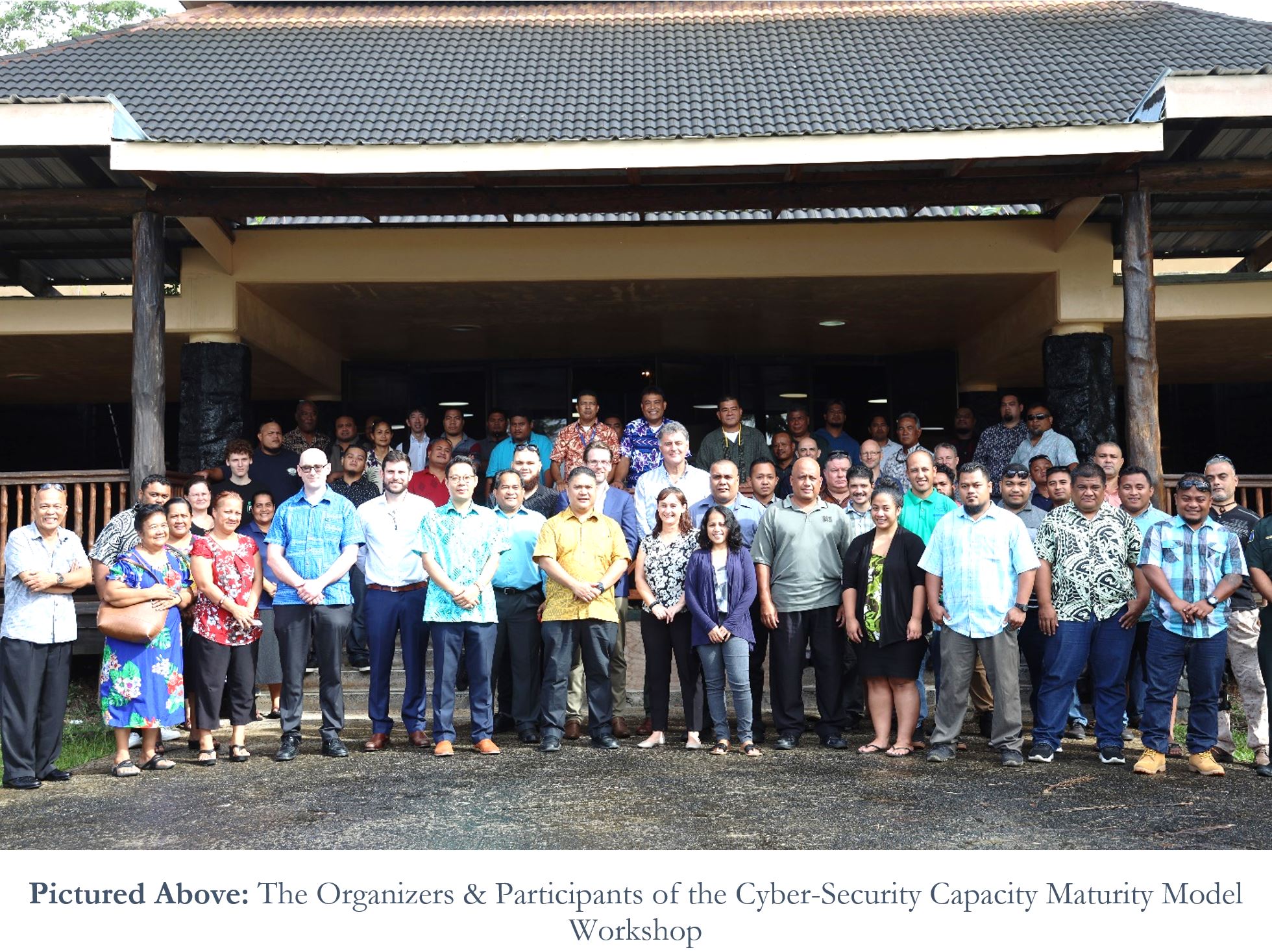
FSM Information Services
Press Release
FSM Cyber-Security Capacity Maturity Model Workshop Explores the Nation’s Cyber Strengths, Weaknesses, Opportunities, & Threats
PALIKIR, Pohnpei—As a component of the Digital Federated States of Micronesia (FSM) Project, from January 28th, 2020 to January 31st, 2020, the FSM National Government hosted a Cyber-Security Capacity Maturity Model Workshop. Implemented in close collaboration with its partners from the World Bank, the Asia-Pacific Telecommunity, and the Oceania Cyber Security Centre, the purpose of the workshop was for the FSM National Government, the FSM State Governments, and the FSM’s Private Sector to provide and receive information on the Nation’s contemporary cyber infrastructure, and its associated strengths, weaknesses, opportunities, and threats. The physical product expected as an outcome of the workshop and the activities that follow is a report on national cybersecurity capacity, and recommendations for advancing maturity in the future, which will be used by the newly established Office of Information Technology & Supporting Services within the Department of Transportation, Communications, & Infrastructure (DTC&I) as a means of framing its short, medium, and long-term objectives.
“I believe this exercise is timely,” said the Honorable Carlson D. Apis, Secretary of DTC&I, “as we will expect that this review…will be significant in providing the policy guidelines necessary in the next phases of our development efforts, to complement and support the on-going and proposed FSM Digitalization Projects beginning this year and consequently the development of our cyber legislation, a necessary component of our [digitization] efforts.”
Although the FSM is contemporaneously one of the least digitally connected countries in the Pacific, the democratization of accessibility to the internet (and thus the democratization of knowledge) is a key agenda item in the administration of His Excellency David W. Panuelo, President of the FSM, and the Honorable Yosiwo P. George, Vice President of the FSM. As an example, with affordable access to highspeed internet in main and remote islands, the presently impossible task of an FSM citizen submitting a passport renewal request to the FSM National Government through a one-stop-shop service would become possible. However, such a task would also necessitate that accessing Government services online be intuitive, and that the security for such services be sufficient to protect citizens’ personal data and privacy.
“The Digital FSM project, in collaboration with the World Bank, FSMT Cable Corporation, the FSM Telecommunications Regulation Authority, the FSM Telecommunications Corporation, and others, is preparing to expand fiber optic accessibility to schools, homes, and hospitals,” President Panuelo said. “Beyond the main islands, I also expect to see a useable level of internet accessibility on most remote islands [in the coming years]. Through this cyber-security workshop and accompanying report, I trust that we’ll be given the appropriate guidance on how to improve upon our strengths, eliminate our weaknesses, take advantage of our economic opportunities, and mitigate digital threats.”
The President emphasized that an increasing level of internet usage, and by extension the Government’s capacity to provide digital services, requires that the Government be capable at building trust and confidence in the Nation’s digital security. Amongst the technical tasks that will need to occur this may also require some changes in the Government’s philosophy towards the execution of official duties.
“Less than 100% of our public servants in the FSM National Government currently use a Government email address to complete their official Government duties,” the President said. “Even without having a background in IT, one can see that this can pose a cybersecurity threat.”
The Oceania Cyber Security Centre’s Project Lead for the Capacity Maturity Model Workshop, Dr. James Boorman, welcomed the priority that the FSM has given to cybersecurity and thanked the FSM National Government for its leadership in this area. “We are delighted to work with the FSM National Government and our partners in deploying the [Capacity Maturity Model] and hope that the resulting report will assist the FSM to continue to strengthen its cybersecurity capacity,” Dr. Boorman said.
The FSM National Government extends its appreciation to the World Bank, the Asia-Pacific Telecommunity, the Oceania Cyber Security Centre, and all of the other partners and participants in the Cyber-Security Capacity Maturity Model Workshop for their invaluable contributions to the Nation’s digital development.